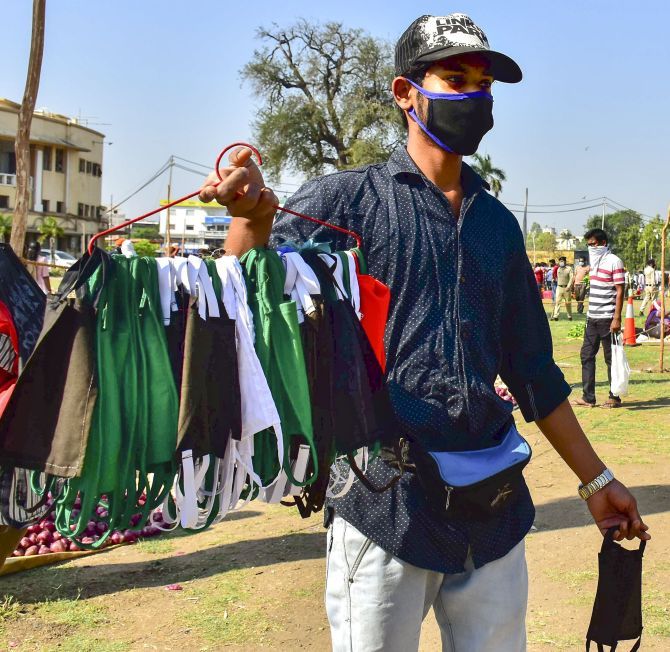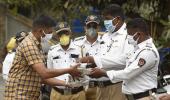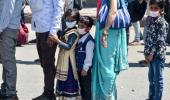As India witnesses a spike in coronavirus cases, the central government on Saturday issued an advisory asking people to wear "homemade face covers", particularly when they step out of their houses in order to curb the spread of COVID-19.

In the 'Advisory on the use of Homemade Protective Cover for Face and Mouth', the government said the use of such masks will help in protecting the community at large, and that certain countries have claimed benefits of homemade face masks for the general public.
The number of COVID-19 cases in the country rose to 2,902 while the death toll increased to 68 on Saturday.
In the United States, President Donald Trump has asked all citizens to voluntary use non-medical masks as an additional public health measure to fight the deadly coronavirus while keeping medical-grade masks available for health workers.
The US Centre for Disease Control and Prevention has recommended that Americans wear basic cloth or fabric masks that can be either purchased online or simply made at home.
The Indian government's advisory underlined that usage of homemade masks certainly will help in maintaining overall hygiene, while cautioning that "this face cover is not recommended for either health workers or those working with or in contact with COVID 19 patients or are patients themselves as these categories of people are required to wear specified protective gear".
"It is suggested that people who are not suffering from medical conditions or having breathing difficulties may use the handmade reusable face cover, particularly when they step out of their house. This will help in protecting the community at large," it said.
The advisory also has a manual issued by the office of the government's Principal Scientific Advisor on homemade protective cover for face and mouth for curbing the spread of SARS-CoV-2 coronavirus.
The manual suggested that "wearing face covers is especially recommended for people living in densely populated areas across India".
"Homemade reusable face covers only reduce the chances of inhaling droplets still in the air from an infected person, they do not give full protection," the manual read, while stressing that such face covers must be washed and cleaned every day.
It also stressed that social distancing must be maintained.
The proposed guide is meant to provide a simple outline of best practices to make, use and reuse face covers to enable NGOs and individuals make face protection covers themselves.
According to the manual, any used cotton cloth can be used to make face covers. The colour of the fabric does not matter but one must ensure that the fabric is washed well in boiling water for 5 minutes and dried well before making the face cover.
It also listed the procedures of making such homemade masks while asking people to ensure that it fits the face well and there are no gaps on the sides.
In the manual, the government urges people to wash hands thoroughly before wearing the face cover, switch to another fresh one as the face cover becomes damp or humid, and never reuse it without cleaning.
"Never share the face cover with anyone. Every member in a family should have separate face cover," the manual stated.
It also mentioned how such masks should be cleaned and sanitized everyday.










